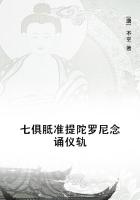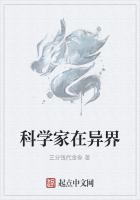could sell two thousand francs worth of my consolidated stock. But take care, my lad; for if you have to come upon me, it will be your daughter's fortune that you will take."
"Ah! my uncle, how simply you say things! You touch my heart."
"General Foy was touching mine in quite another fashion just now.
Well, go on; settle the business; lands can't fly away. We are getting them at half price. Suppose we do have to wait six years, there will always be some returns; there are wood-yards which will bring in a rent. We can't really lose anything. There is but one chance against us. Roguin might run off with the money."
"My wife told me so this very night. She fears--"
"That Roguin will carry off our funds?" said Pillerault, laughing.
"Pray, why?"
"She says there is too much in his nose; and like men who can't have women, he is furious to--"
With a smile of incredulity, Pillerault tore a strip from a little book, wrote down an amount, and signed the paper.
"There," said he, "there's a cheque on the Bank of France for a hundred thousand francs for the Ragons and for me. Those poor folks have just sold to your scoundrel of a du Tillet their fifteen shares in the mines at Wortschin to make up the amount. Worthy people in trouble,--it wrings my heart; and such good, noble souls, the very flower of the old bourgeoisie! Their brother, Popinot, the judge, knows nothing about it; they hid it from him so that he may not feel obliged to give up his other works of charity. People who have worked, like me, for forty years!"
"God grant that the Oil of Comagene may triumph!" cried Birotteau. "I
shall be doubly happy. Adieu; come and dine on Sunday with the Ragons, Roguin, and Monsieur Claparon. We shall sign the papers the day after to-morrow, for to-morrow is Friday, you know, and I shouldn't like--"
"You don't surely give in to such superstitions?"
"Uncle, I shall never believe that the day on which the Son of God was put to death by man can be a fortunate day. Why, we ourselves stop all business on the twenty-first of January."
"On Sunday, then," said Pillerault brusquely.
"If it were not for his political opinions," thought Birotteau as he went down stairs, "I don't believe he would have his equal here below.
What are politics to him? He would be just as well off if he never thought of them. His obstinacy in that direction only shows that there can't be a perfect man."
"Three o'clock already!" cried Cesar, as he got back to "The Queen of Roses."
"Monsieur, do you mean to take these securities?" asked Celestin, showing him the notes of the umbrella-maker.
"Yes; at six per cent, without commission. Wife, get my dressing things all ready; I am going to see Monsieur Vauquelin,--you know why.
A white cravat, of course."
Birotteau gave a few orders to the clerks. Not seeing Popinot, he concluded that his future partner had gone to dress; and he went gaily up to his room, where the Dresden Madonna, magnificently framed according to his orders, awaited him.
"Hey! that's pretty," he said to his daughter.
"Papa, you must say beautiful, or people will laugh at you."
"Upon my word! a daughter who scolds her father! Well, well! To my taste I like Hero and Leander quite as much. The Virgin is a religious subject, suitable for a chapel; but Hero and Leander, ah! I shall buy it, for that flask of oil gave me an idea--"
"Papa, I don't know what you are talking about."
"Virginie! a hackney-coach!" cried Cesar, in stentorian tones, as soon as he had trimmed his beard and seen little Popinot appear, who was dragging his foot timidly because Cesarine was there.
The lover had never yet perceived that his infirmity no longer existed in the eyes of his mistress. Delicious sign of love!--which they on whom chance has inflicted a bodily imperfection can alone obtain.
"Monsieur," he said, "the press will be ready to work to-morrow."
"Why, what's the matter, Popinot?" asked Cesar, as he saw Anselme blush.
"Monsieur, it is the joy of having found a shop, a back-shop, kitchen, chambers above them, and store-rooms,--all for twelve hundred francs a year, in the Rue des Cinq-Diamants."
"We must take a lease of eighteen years," said Birotteau. "But let us start for Monsieur Vauquelin's. We can talk as we go."
Cesar and Popinot got into the hackney-coach before the eyes of the astonished clerks, who did not know what to make of these gorgeous toilets and the abnormal coach, ignorant as they were of the great project revolving in the mind of the master of "The Queen of Roses."
"We are going to hear the truth about nuts," said Cesar, half to himself.
"Nuts?" said Popinot.
"There you have my secret," said the perfumer. "I've let loose the word /nuts/,--all is there. The oil of nuts is the only oil that has any real effect upon hair. No perfumer has ever dreamed of it. I saw an engraving of Hero and Leander, and I said to myself, If the ancients used all that oil on their heads they had some reason for it;
for the ancients are the ancients, in spite of all the moderns may say; I stand by Boileau about the ancients. I took my departure from that point and got the oil of nuts, thanks to your relation, little Bianchon the medical student; he told me that at school his comrades used nut oil to promote the growth of their whiskers and mustachios.
All we need is the approval of Monsieur Vauquelin; enlightened by his science, we shall mislead the public. I was in the markets just now, talking to a seller of nuts, so as to get hold of the raw material, and now I am about to meet one of the greatest scientific men in France, to get at the quintessence of that commodity. Proverbs are no fools; extremes meet. Now see, my boy, commerce is the intermediary between the productions of the vegetable kingdom and science.
Angelique Madou gathers, Monsieur Vauquelin extracts, we sell an essence. Nuts are worth five sous a pound, Monsieur Vauquelin will increase their value one hundredfold, and we shall, perhaps, do a service to humanity; for if vanity is the cause of the greatest torments of mankind, a good cosmetic becomes a benefaction."















